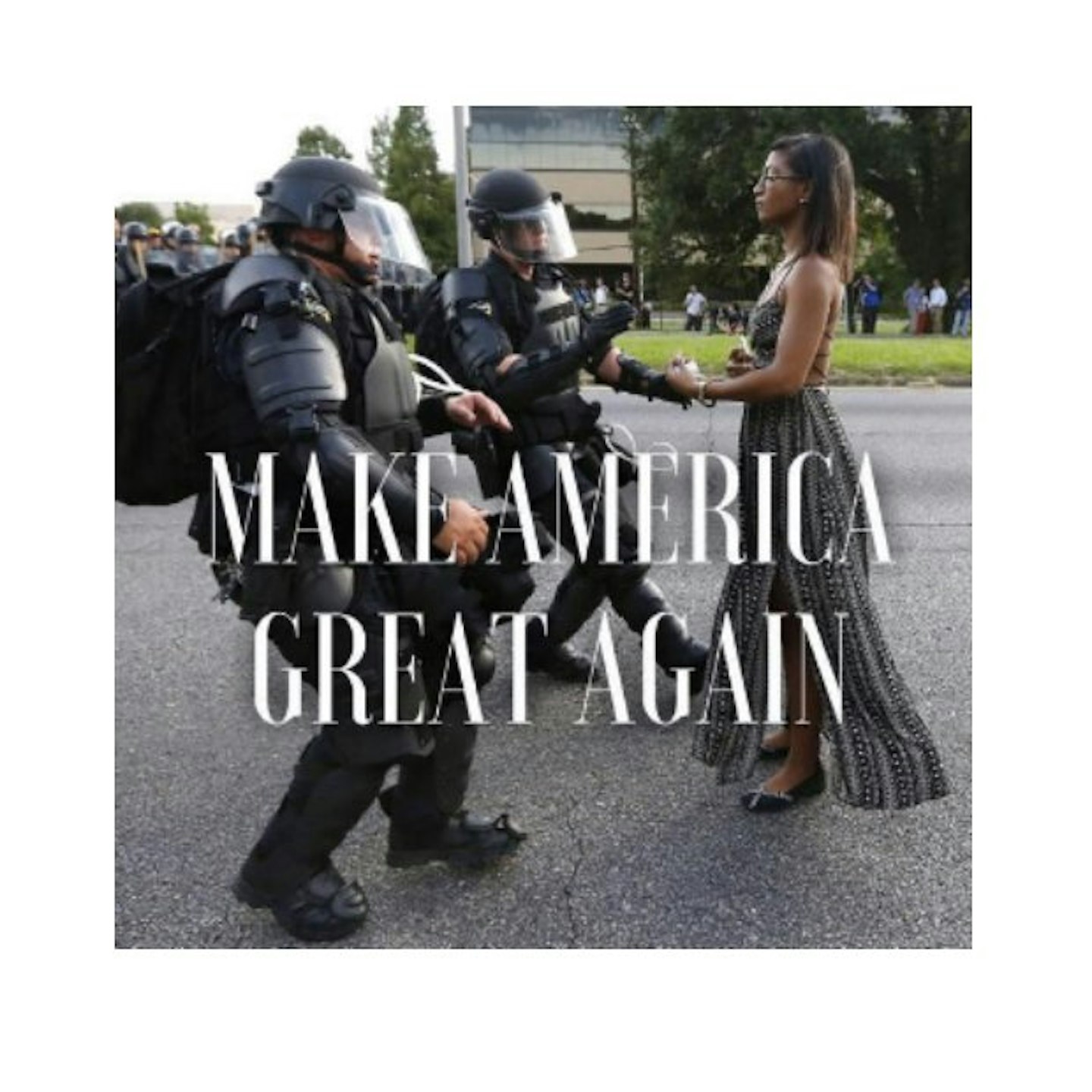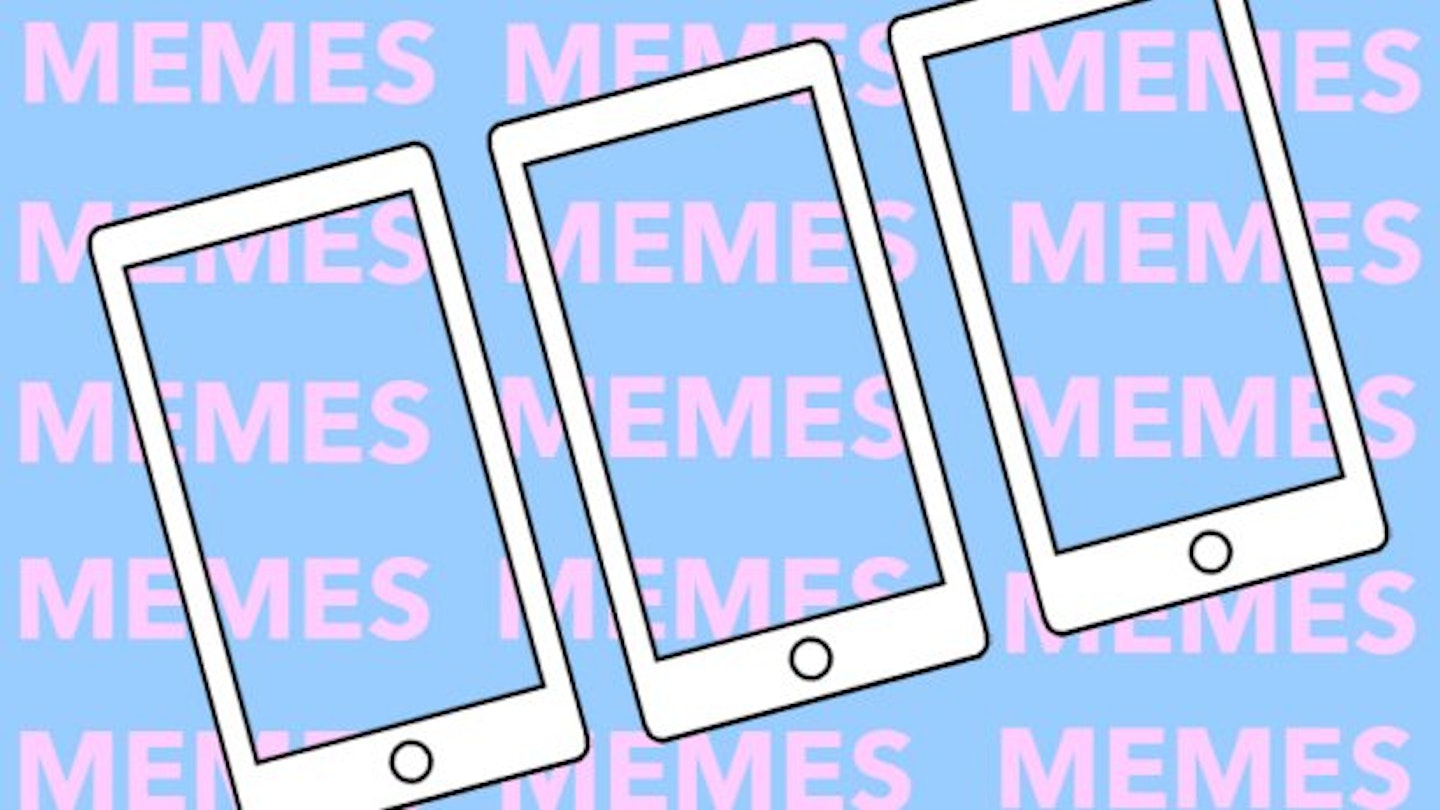If you own a phone, tablet, laptop or TV, and frequently scroll through Instagram, Facebook and Twitter, then you've probably encountered them. Memes, that is. Lately more than ever, we're seeing them on every social media platform, and they're beginning to dominate our newsfeeds more than actual news itself. Yep, what once started off as a simple way to share a joke has now grown into an internet phenomenon, and a cultural one too, for that matter.*
Originally, and according to the English Oxford Dictionary, memes were 'an element of a culture or system of behaviour passed from one individual to another by imitation'. In our modern day and age, memes present themselves as viral images or videos, and they can be political, satirical, comical, and make entertainment and global news more relatable - especially for millennials. They can range from funny pictures of cats or photoshopped images of celebrities, to more serious videos about bullying.
As well as aiming to make us laugh, memes have the ability to identify a common feeling, experience or opinion. Think about it: how many times have you seen a funny meme and thought 'that's so me', and then proceeded to tag your like-minded friend in the comment box? I admit that I share at least 3-4 of these viral pictures a day, because they're just so relatable. It's this common association that makes memes such a cultural phenomenon: they're both personal and universal all at the same time. And because of this, they're being shared more than ever.
But these non-serious, comical memes are littered in amongst more serious ones. Remember the photo of the young woman who was smiling in the face of English Defence League protestors at a march back in April, or the iconic photo of the woman who stood up to riot police during a protest against police brutality in Louisana? These images serve to capture the viewers attention through visual language. Simply sharing such a meme to Facebook or Twitter gives people who would have otherwise struggled to express their views, a voice and a stance. And very powerful ones, at that.

Credit: @skullpilot
Even seemingly harmless, funny memes can open up doors to more serious topics. The clip of Professor Robert E Kelly being interrupted by his children during a BBC interview was shared globally, and dubbed 'the funniest video of the year'. Once all of the amusement had died down though, race rows were sparked after some viewers wrongly assumed that the Asian mother, who quickly ushered the two young children out of the way, was in fact their nanny.
At the other end of the spectrum, brands like Missguided and Gucci have cottoned onto the fact that memes are easily able to tap into modern day culture. They've managed to use them as an easy marketing tool to grow their social media followings and interact with their audiences, in the hope that this relation will lead to more product sales. Meanwhile, publishers have been using memes to quickly distribute news stories and drive more traffic to their sites.

Credit: @missguided
As well as spreading news like wildfire, memes also have the ability to completely destroy the person in focus. Take, for example, the viral memes that surfaced after Theresa May admitted to 'running through fields of wheat'. Within five minutes of her confession being aired, the internet literally exploded with mocking pictures and videos, and you could argue that these may have affected the way people voted in the election. Why? Because some millenials may have found her confession completely unrelatable, and this may have pushed them to vote for another politician. Equally though, to others, May may have become an internet hero in her own right, and this could have worked in her favour.
Either way, it's clear to see that memes serve as more than just a source of entertainment. They can influence and they can express; they can unite and they can tear apart; and they can even propel the unknown subject of a picture into worldwide fame. Basically, they're pretty powerful, and when a great piece of digital content spreads rapidly enough to gain huge amounts of traction, it becomes a shared cultural experience for internet users around the world.
Like this? You might also be interested in:
Ask A Hacker: How Can We Protect Our Devices From Cyber Attacks?
Follow Arianna on Twitter @ariannachatz
This article originally appeared on The Debrief.
